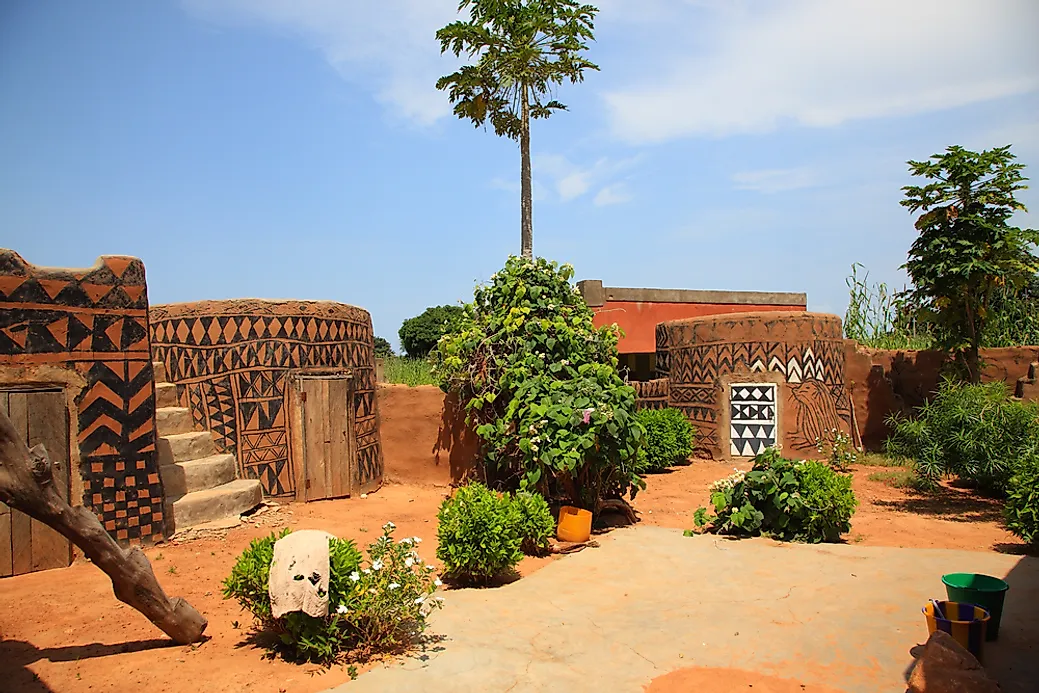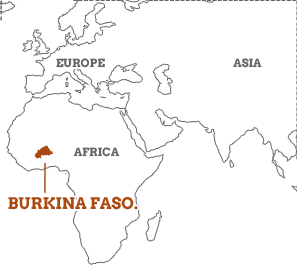

State Religious Minority Discrimination Index (0-108, lower means less discrimination) 1 Percent confident in religious organizations. Percent considering that God is not at all important in their life. Percent that do not trust people of other religions Percent believing church gives answers to people's spiritual needs.

Percent that agree: We depend too much on science and not enough on faith Percent that think that religious faith is an important quality in children Percent believing that things would be better if there are more people with strong religious beliefs. Percent believing that religious leaders should not influence people's vote. Percent believing that politicians who do not believe in God are unfit for public office. Percent believing that there are clear guidelines on good and evil. Percent praying to God more than once per week. Percent attending religious services at least once a month. Percent belonging to a religious denomination. Public Opinion (Burkina Faso)(Calculated by the ARDA from the World Values Survey) 11 There are no religious requirements or oaths necessary in order to hold office. The extent to which there are religious requirements and oaths for holding office. Government funding of religion goes roughly equally (taking into account population distributions) to all religions for which there are a substantial number of adherents in the country. The extent to which funding is exclusive to one or a few religions. The extent to which religious education is mandatory in public schools. Official Support: The formal relationship between religion and state. Groups are officially required to register but groups which do not are not in any way restricted, except in that they may be denied status as a legal entity. What are the consequences of registration? 1
Which country used to be called upper volta registration#
Registration is required but is never denied, and treatment of all religions in the registration process is equal Is religious registration someties denied? 1

Most are religiously heterogeneous, although the Fulani and Dioula communities are overwhelmingly Muslim. There are more than 60 different ethnic groups. Small Syrian and Lebanese immigrant communities reside in the two largest cities and are more than 90 percent Christian. Bobo-Dioulasso, the second largest city, is mostly Muslim. Ouagadougou, the capital, has a mixed Muslim and Christian population. Persons practice traditional indigenous religious beliefs throughout the country, especially in rural communities. Muslims reside largely in the northern, eastern, and western border regions, while Christians live in the center of the country. Statistics on religious affiliation are approximate because the majority of citizens practice traditional indigenous religious beliefs to varying degrees, and strict adherence to Christian and Muslim beliefs is often nominal. The Government also estimated that 24 percent of the population maintains exclusively traditional indigenous beliefs, 17 percent are Roman Catholic, and 3 percent are members of various Protestant denominations. The Government estimated in the 1996 census that approximately 60 percent of the population practices Islam, and that the majority of this group is Sunni. The country has an area of 105,689 square miles and a population of 14.3 million.


 0 kommentar(er)
0 kommentar(er)
